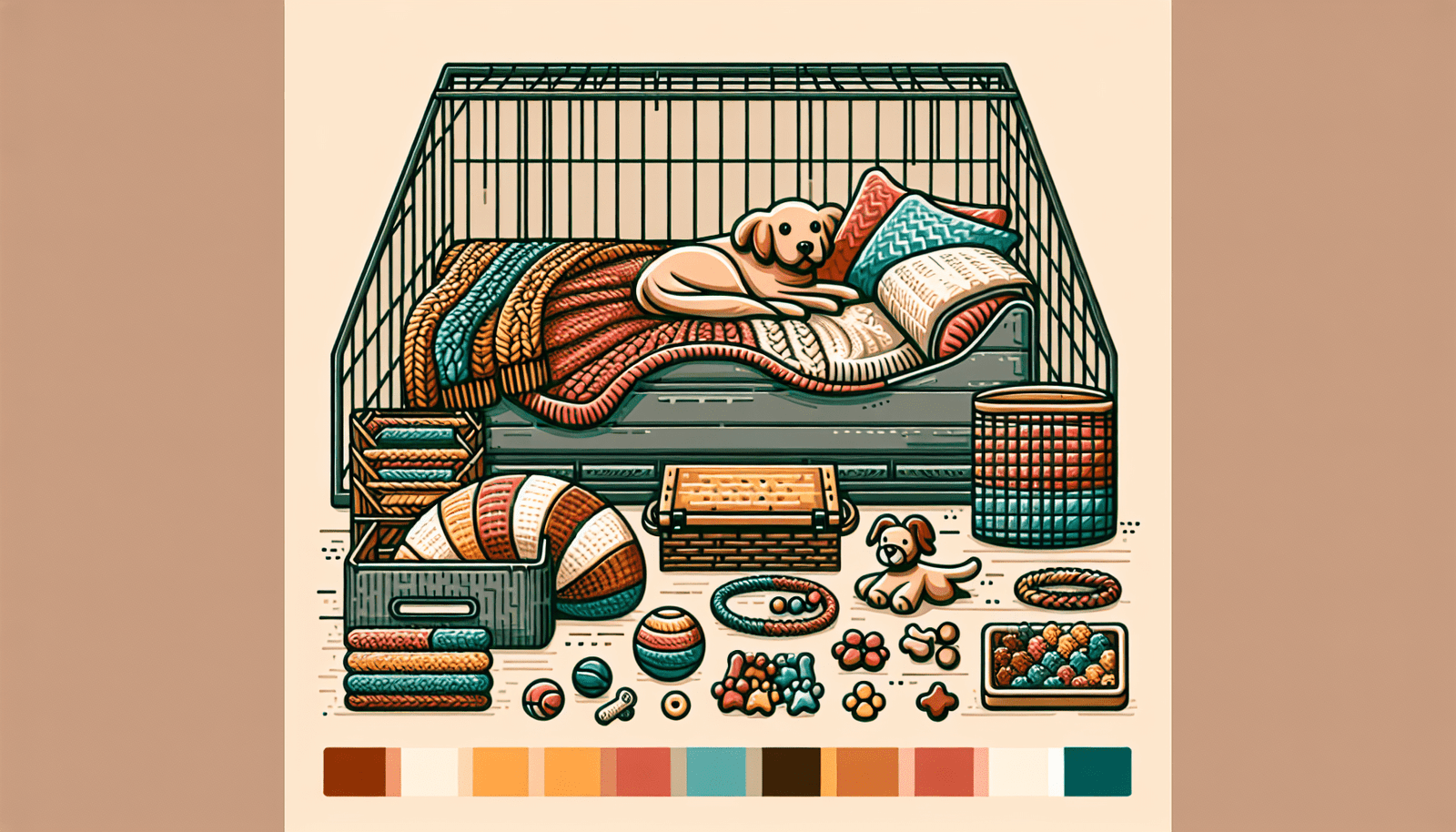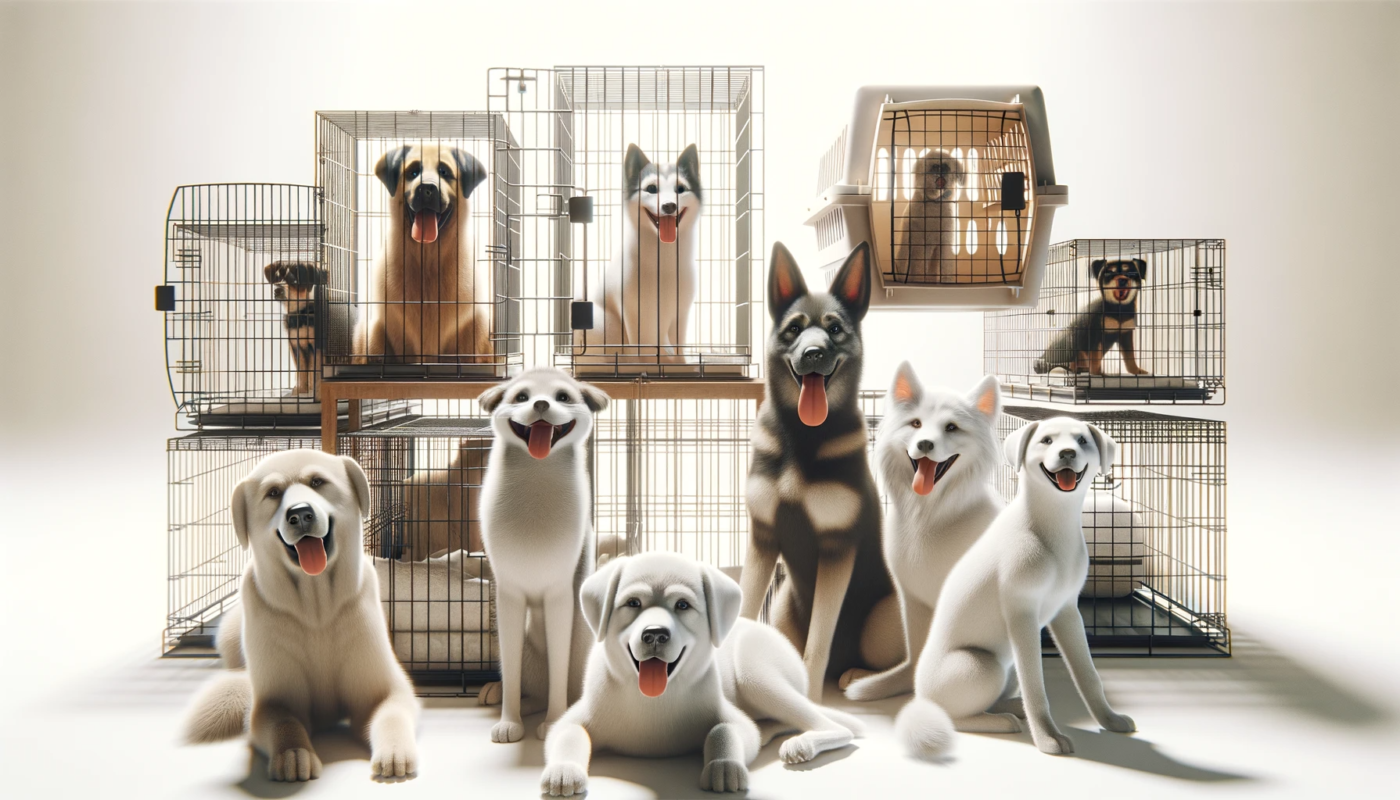
Helping Anxious Dogs with Crate Training
Is your Dog Anxious?
If your furry friend is showing signs of anxiety, you’re not alone. Many dogs experience anxiety, whether it’s due to separation, loud noises, or other triggers. One way to help alleviate their stress is through crate training.
Find products like these on Amazon!
What is Crate Training?
Crate training involves teaching your dog to view their crate as a safe and comfortable space. It can provide a sense of security for anxious dogs, giving them a designated area where they can relax and feel calm.
Benefits of Crate Training for Anxious Dogs
Crate training can offer a range of benefits for dogs with anxiety. It provides them with a safe space where they can retreat to when they feel overwhelmed, helping to reduce stress and anxiety levels. Additionally, crates can be used to facilitate house training and establish boundaries for your furry friend.
Selecting the Right Crate
When it comes to choosing a crate for your anxious dog, there are a few factors to consider.
Crate Size
Make sure to select a crate that is large enough for your dog to stand up, turn around, and lie down comfortably. A crate that is too small can make your anxious dog feel confined and uncomfortable, while one that is too large may not provide the sense of security they need.
Types of Crates
There are different types of crates available, including wire crates, plastic crates, and soft-sided crates. Each type has its own benefits, so consider your dog’s specific needs and preferences when selecting a crate.
Introducing the Crate
Introducing your anxious dog to their crate in a positive and gradual manner is essential.
Positive Association
Start by placing treats, toys, and blankets that your dog loves inside the crate. This will help them associate the crate with positive experiences and create a sense of comfort and security.
Gradual Introduction
Allow your dog to explore the crate at their own pace. Leave the door open and let them enter and exit freely. Avoid forcing them into the crate or shutting the door too soon, as this can lead to negative associations with the crate.
Creating a Safe Space
Once your dog is comfortable entering the crate voluntarily, you can start using it as a safe space.
Comfort Items
Add comfortable bedding, toys, and familiar scents to the crate to make it more inviting for your anxious dog. This will help them feel more at ease and relaxed when spending time in their crate.
Using the Crate for Anxiety Relief
Now that your anxious dog is comfortable with their crate, you can start using it as a tool for anxiety relief.
Quiet Time
Encourage your dog to spend some quiet time in their crate when they are feeling anxious or stressed. This can help them relax and unwind in a safe space away from external triggers.
Crate Training for Separation Anxiety
If your dog experiences separation anxiety, crate training can be particularly helpful. Gradually increase the amount of time your dog spends in the crate while you are away, starting with short intervals and gradually working up to longer periods.
Common Mistakes to Avoid
While crate training can be beneficial for anxious dogs, there are some common mistakes that pet parents should avoid.
Find products like these on Amazon!
Using the Crate as Punishment
Avoid using the crate as a form of punishment for your dog. Crate training should be a positive experience that allows your dog to feel safe and secure, not a place they associate with negative feelings.
Leaving your Dog in the Crate for Extended Periods
While crates can be a great tool for anxiety relief, it’s important not to leave your dog in the crate for extended periods. Make sure to provide plenty of opportunities for your dog to stretch their legs, go for walks, and engage in playtime outside of the crate.
Ignoring Signs of Distress
Pay attention to your dog’s body language and behavior when using the crate. If they show signs of distress, such as whining, pacing, or barking, it’s important to address their concerns and make adjustments as needed.
Failing to Gradually Increase Crate Time
When using the crate for anxiety relief, it’s crucial to gradually increase the amount of time your dog spends in the crate. Rushing the process can cause your dog to feel overwhelmed and anxious, undoing the progress you’ve made.
Conclusion
Crate training can be a valuable tool for helping anxious dogs feel safe and secure. By selecting the right crate, introducing it properly, and using it for anxiety relief, you can provide your furry friend with a comforting space to retreat to when they need it most. Remember to avoid common mistakes and always monitor your dog’s behavior to ensure that crate training is a positive experience for them.
Find products like these on Amazon!



-
-
7 days
Tagged Anxiety, Crate training, Dogs, Pet care